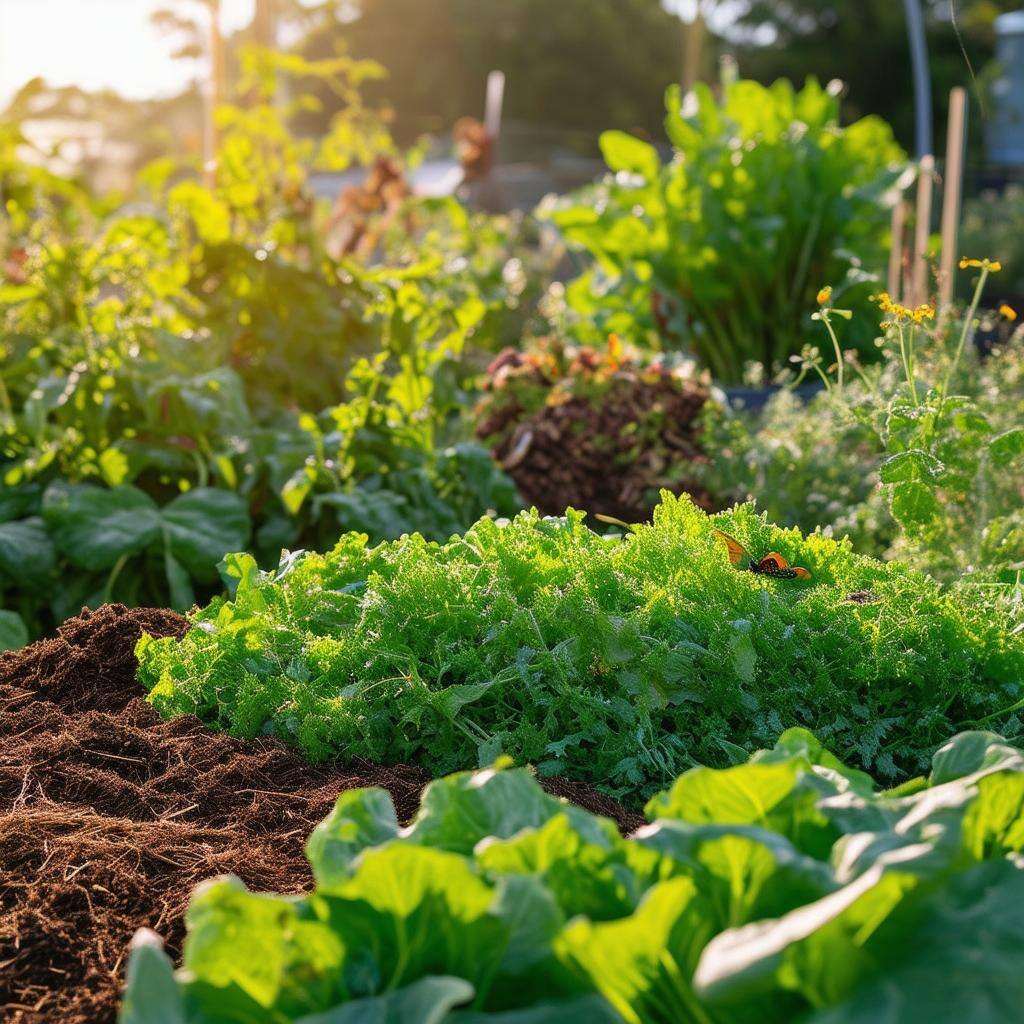Creating Rich Compost for South East Queensland Gardens
Introduction
In the lush landscapes of South East Queensland (SEQ), composting is a cornerstone of sustainable gardening. This natural process transforms organic waste into nutrient-rich humus, enhancing soil fertility and promoting robust plant growth. By creating rich compost, gardeners can improve soil structure, increase moisture retention, and reduce the need for chemical fertilizers, all while minimizing environmental impact.
Understanding Composting
Composting is the aerobic decomposition of organic materials by microorganisms, resulting in a dark, crumbly substance known as compost. The process requires a balanced combination of:
-
Greens: Nitrogen-rich materials such as fruit and vegetable scraps, coffee grounds, and fresh grass clippings.
-
Browns: Carbon-rich materials including dried leaves, straw, and shredded paper.
-
Moisture: Essential for microbial activity; the compost should be as damp as a wrung-out sponge.
-
Aeration: Oxygen is vital for aerobic decomposition; regular turning introduces air into the pile.
Maintaining the proper balance of these components facilitates efficient decomposition and produces high-quality compost.
Selecting Composting Materials
In SEQ, a variety of compostable materials are readily available:
-
Green Materials: Kitchen scraps, coffee grounds, tea bags, fresh grass clippings, and green plant prunings provide nitrogen to fuel microbial activity.
-
Brown Materials: Dried leaves, straw, shredded newspaper, cardboard, and wood shavings supply carbon, offering energy for decomposers.
It's advisable to avoid adding meat, dairy products, and oily foods to the compost, as they can attract pests and create odors. Additionally, refrain from including diseased plants or invasive weeds to prevent spreading them in your garden.
Composting Methods for SEQ's Climate
The subtropical climate of SEQ is conducive to various composting techniques:
-
Traditional Heap Composting: Layering greens and browns in a heap allows for natural decomposition. The region's warmth accelerates microbial activity, leading to faster composting.
-
Vermicomposting: Utilizing earthworms, particularly red wigglers, to process organic waste into nutrient-rich castings. This method is suitable for small spaces and can be conducted year-round, provided the worms are protected from extreme temperatures.
-
Bokashi Composting: An anaerobic fermentation process that breaks down kitchen scraps, including meat and dairy, into a pre-compost material. This method is efficient and produces minimal odors, making it ideal for urban gardeners.
Managing the Composting Process
Effective composting requires attentive management:
-
Aeration: Regularly turning the pile introduces oxygen, essential for aerobic microbes. Infrequent turning can lead to anaerobic conditions, causing unpleasant odors.
-
Moisture Control: The compost should resemble a damp sponge—too dry, and decomposition slows; too wet, and it may become anaerobic. Covering the pile during heavy rains prevents waterlogging.
-
Temperature Monitoring: Active composting generates heat, with optimal temperatures between 40°C and 60°C. Maintaining this range ensures pathogen destruction and efficient breakdown.
Accelerating Compost Maturation
To expedite compost readiness:
-
Compost Activators: Incorporate materials like comfrey leaves, grass clippings, or well-rotted chicken manure to boost microbial activity.
-
Turning Frequency: More frequent turning enhances oxygen flow, promoting faster decomposition.
-
Particle Size Reduction: Shredding or chopping materials increases surface area, allowing microbes to work more effectively.
Utilizing Finished Compost
Recognizing mature compost is crucial:
-
Indicators: A dark, crumbly texture with an earthy aroma signifies readiness. Immature compost may still generate heat and can harm plants if applied prematurely.
-
Application Methods: Incorporate compost into garden beds, use as mulch, or blend into potting mixes. Regular applications improve soil structure, enhance nutrient content, and support beneficial organisms.
-
Benefits: Compost enriches the soil, promoting vigorous plant growth and bolstering resilience against pests and diseases.
By mastering composting tailored to SEQ's unique climate, gardeners can cultivate thriving, sustainable gardens that harmonize with the natural environment.




